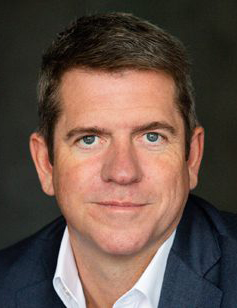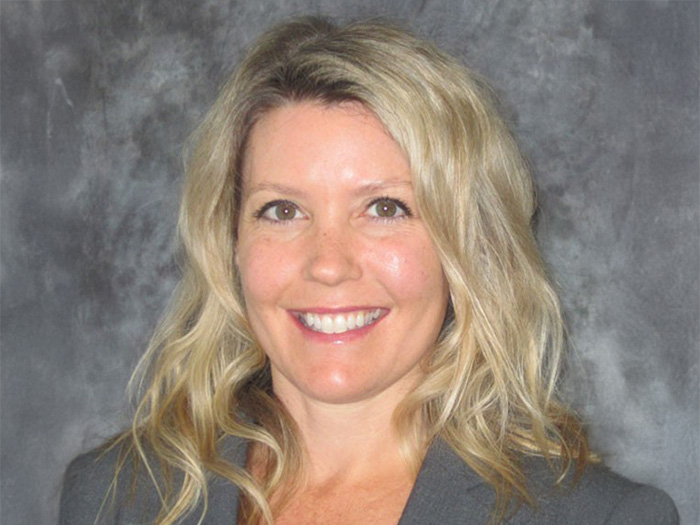Sponsored Content by Sompo
Moving with Controlled Optimism

Canada is the ninth largest economy in the world, and according to the office of the Chief Economist for the U.S. Department of State, it also shares, at 5,525 miles, the longest international border in existence with its economic powerhouse of a neighbor to the south, the U.S.
Per the U.S. State Department, nearly $2.6 billion per day in goods and services trades between the two nations daily, aided in that movement by 120 land ports of entry along that extensive border.
The Swiss Re Institute also ranks Canada 7th by premium on a Commercial P&C basis. With a market premium of $25.64bn, Canada represents 2.4% of the total global premium ($1.04trn).
As such, Canada is an attractive place to do business of any sort.
“It’s built on an economy that’s driven by entrepreneurialism,” said the Toronto-based Rohan Dixon, who was appointed President and CEO, Commercial P&C Insurance, Canada, for Sompo International in January.
In his new position, Dixon is eager to demonstrate to Canadian businesses the reach and capabilities of Sompo International’s specialty underwriters and claims team.
“When you’re starting a new organization in a country, you’re limited when you land on the ground, usually by your capacity, by the underwriting platform you can leverage and the initial resources at your disposal,” Dixon said.
“We’ve got an existing platform, Sompo Japan Insurance Inc. Canada Branch, which is fully licensed in most products, and we’ve got this breadth of underwriting expertise that sits around the world, including London,” he added.
Dixon is confident in Sompo International’s capabilities. But he also recognizes that Canadian businesses, like those in the U.S. and other countries, face ongoing CAT activity that has caused numerous underwriters to re-evaluate their risk appetites. Like many, he feels that overall, the insurance industry has its work cut out for it to remain a viable risk transfer option for business leaders.
“Without a doubt we’re seeing change in weather patterns, conductive storms, wildfires and windstorms,” Rohan said.
“The insurance industry in general has a long way to go in creating a more efficient system of getting monies back to our policyholders in the event of a disaster,” Dixon said.
“Everyone wants the industry to be seen as a really positive force for growth and development, and of course, protection,” Dixon added.
Dixon said that capacity and rate changes, as they affect different lines, are as palpable in Canada as they are elsewhere.
“We are seeing some clients in the marketplace either having capacity withdrawn or seeing rate increases due to reinsurance or other pressures. From the casualty standpoint, Canada is not as litigious as the U.S., however we have seen many quarters with rate increases, though we are starting to see that ease,” Dixon said.
Growth, Accompanied by Change

Rohan Dixon, President and CEO, Commercial P&C Insurance, Canada, Sompo International
One of the many business opportunities that Dixon has his eye on in Canada, relates to the environment. It’s the opportunity to underwrite businesses that are going to be part of the energy use transition that he thinks can be a welcome part of Sompo International’s portfolio going forward.
“One of the things I’m hoping we can do as an industry is to really support those businesses that are right in the forefront of the work to combat climate change,” he said.
“Whether it’s carbon capture or other new industries that are being built to address climate change, they will all need insurance in order to obtain financing and establish the capacity to grow. I think the insurance industry plays an integral part in that innovation cycle, which in turn plays an important role in trying to limit the impact of climate change.”
“Canada has been the home of renewables for generations, whether it be hydro, solar, or wind and those technologies are advancing at the same time. We want to make certain that we are in a competitive place to be able to support the transition to renewables as these organizations look to move and change,” he said.
Building Out Specialty Insurance Capabilities
Dixon can point to a number of additional vital economic sectors in Canada that Sompo International looks to make inroads with as it demonstrates and builds out its specialty insurance capabilities.
“We’ll grow our marine capability and we’ll continue our aviation relationships,” Dixon said.
“We’ll expand our environmental, surety, and construction capabilities as well. All of those areas will come along as we continue enhancing our underwriting expertise,” he added.
“As we go into the mid-market segment, we’ll look at manufacturing across the country. We’re looking at distribution and at hospitality and real estate, too. Through Sompo International’s AgriSompo business, we’ve got a very large global agriculture practice and we’ll be working with those colleagues to determine what opportunities exist within the agriculture sector in Canada.”
Dixon said he expects to establish a strong casualty underwriting team in Canada, as well.
Canada is a big country with lots of opportunity for (re)insurers. Dixon, like any leader, wants to build a substantial business there, but he also wants to move conservatively. That means only getting involved in risk transfer conversations where he knows his team can deliver expertly.
“You want to go slowly,” Dixon said. “You want to take your time and understand exactly what your clients’ needs are and then deliver a solution that meets their needs. So, you take that little bit of extra lead time,” Dixon said.
“That’s not a bad thing when you are getting started. And when you’re talking to talent about coming on board, whether that be senior underwriting experts or maybe someone newer to the industry, you’ve got a really strong story to tell about A-rated paper and having the ability to get going right out of the gate. That’s really compelling, both to underwriters and to clients.”
Sooner or Later; Claims
No conversation about insurance would be complete without a discussion about claims.
“At the end of the day, in insurance, claims are where the rubber hits the road,” Dixon said.
Dixon said Sompo International has a strong claims team in London and in the U.S. to back-up its work in Canada while building its own in-house claims team.
“That’s to make certain that our clients know that there is ownership on the ground, but that will be in conjunction with the rest of our claims organization globally,” he said.
Their Time is Now
As previously cited, Dixon is clear that he wants to move conservatively. Still, the opportunity to lead a specialty underwriting team in a country as large and well-positioned as Canada, backed by Sompo International’s global reach and expertise, represents a sterling career opportunity for him.
“The job of expanding a relatively small insurance presence in Canada with strong growth ambitions, bringing that underwriting expertise to the table and having the dialogue with underwriters and team members to come on board and build something is hugely exciting,” Dixon said.
“It’s an entrepreneurial experience with strong A-rated paper and strong capital backing and it is a fantastic place to be. You can’t not be excited when you’re having conversations with people about what we’re building and how we want to differentiate ourselves from a generalist insurer in the marketplace.”
To learn more, visit https://www.sompo-intl.com/insurance/business-units/canada-insurance/.
This article was produced by the R&I Brand Studio, a unit of the advertising department of Risk & Insurance, in collaboration with Sompo International. The editorial staff of Risk & Insurance had no role in its preparation.










